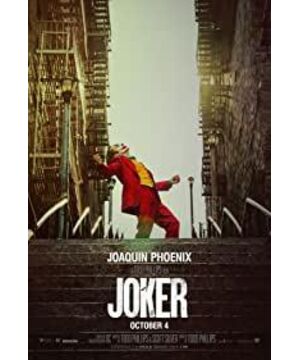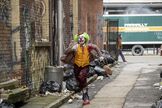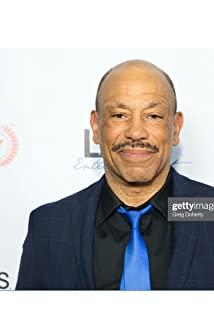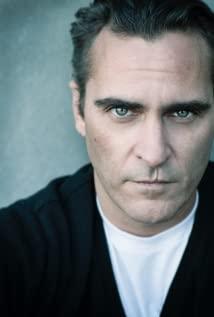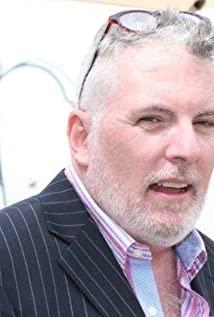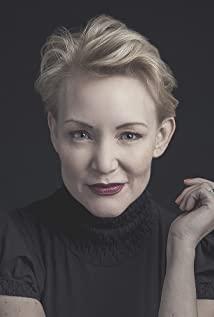01
"Joker": The suffering history of the marginalized in society
DC's new film "Joker" (Joker) won the Golden Lion at the 76th Venice Film Festival. Unlike Heath Ledger's "Joker", this edition portrays the image of an urban outcast of a marginalized person.
Arthur was originally a kind ordinary person. He lives with his mother and takes care of her mother's life meticulously; he will help the female neighbor who can't catch up with the elevator.
He has the kindness of the little people at the bottom: no earth-shattering kindness, but kindness like a gentle little flash.
He also has dreams in his heart.
He said: "Life is already very bitter, and his hope is to make everyone laugh."
His mother nicknamed him "Happy" because he was a happy little boy when he was a child. He wants to be a talk show actor, just like a talk show star on TV.
He worked hard to support himself and his mother. During the day, he worked as an actor in a clown agency, dressed as a clown on the street to promote shops, and went to a children's rehabilitation center to make children laugh.
In the evening, he would go to the bar to perform a talk show, which is considered to be working hard for his dream.
But those who sowed with tears did not cheer for the harvest. The world and destiny were too malicious against him.
He was teased and beaten by a group of gangsters in the street. They snatched his billboard, and he was deducted from his salary for compensation.
For example, he witnessed a group of financial elite molesting female passengers in the subway, but he was beaten up because of his voice.
Because of his colleague's frame, he lost his job to support his family.
His dependent mother was dying of illness and was taken to the hospital, where he was scribbled to sustain life by intubation and ventilator.
This is not too bad.
The worst case is that fate has teased him, it seems to have given him a little gift, but it all takes away in an instant.
For example, he had a love with a female neighbor who shared the wind and rain, and later found out that it was just his own conjecture.
For example, he was invited to the show by Franklin, his most admired talk show actor, and later discovered that he was not for discovering rookies, but to consume him and humiliate him for the effect of the show.
He thought he had finally found his father who had disappeared for many years. He thought Wayne, the richest man in Gotham City, was his father. He only wanted a hug that had been absent for thirty years, but Wayne punched him in the face.
The last straw that crushed him was that the mother who depended on her for life had been deceiving him since childhood. Not only was he an outcast, he was also committed domestic violence by his mother's boyfriend in his childhood. His mother let it go.
His heart may not want to fall, or break the law and discipline. He maintained the tolerance and struggle of small people in a society with profound contradictions like Gotham City.
Current events and destiny drag him down the bottomless abyss.
Looking at it this way, in the history of struggling ordinary people at the bottom of "Joker", the symbol of "Joker" is only expressed as Arthur's profession, and does not touch the essence of this identity.
But Mr. Time admitted that when Uncle Phoenix painted his face white, painted a weird smile on the corners of his mouth, and dyed his hair green, his body was still shocked.
The image of "Joker" is a frequent visitor in horror movies.
In "Return to the Clown", he hides in the wilderness, tricking and killing children.
In "Dead Silence", he is transformed into a puppet, standing in the window, staring at you if there is nothing, he may roll his eyes and open and close his mouth in the next second.
In "Batman: The Dark Knight", he is an anti-social personality criminal played by Heath Ledger. His moody, chaotic good and evil are unpredictable.
In the movie "House in the Woods", which brings together many horror film elements and the theme of ridiculing the horror film industry, the image of "clown" also has a place.
When he and his colleagues in the horror movie industry walked out of the elevator and started killing in the stairwell, Mr. Time was so frightened that he turned off his computer. From then on, when I go to M Ji to eat, I will be as far away as possible from the Uncle Mai doll at the door.
02
Let’s start with the "Harlequin Card"
The English name of the movie "Joker" is Joker, not clow. The English interpretation of the former is "joker" and "harlequin". Its extension is broader than the latter, that is, the clown as the image of a circus. .
In fact, "joker" refers to the harlequin cards in playing cards, which are commonly known as big ghosts and little ghosts, big kings and little kings.
There is a saying that playing cards originated from Tarot cards. The image of Joker does not have a corresponding role in the Tarot cards, and may have evolved from The Fool card. Fools are chaotic and ignorant. This card is the beginning and the end of the tarot card system. It is at the node of the tarot card cycle.
In the beginning, the purpose of setting up this card was to replace it. Because cards are easy to lose, the Fool's Card can be used as any card in any position.
This is also the reason why big and small kings can be combined into pairs or bombs among the many playing methods of card games.
From this, we have derived the characteristics of joker derived from the card culture: First, chaos and disorder, unpredictable. The second is not fixed, which can represent any role.
This does not remind us of the character of the role of the clown.
The clown played by Heath Ledger is full of good and evil. His code of conduct has no ethical constraints, and is an anti-social/anti-moral anti-hero image.
The clown played by Uncle Phoenix brings together images of all kinds of low-level people, marginalized people, and minority groups. He is a microcosm and variant of a group of people. You and I can find the shadows of people around him. In other words, He can be replaced with the real image at will.
In the companion chapter "The Secret of Solitaire", the popular philosophical science work "Sophie's World", "Harlequin Card" plays an image of both righteousness and evil, neither good nor evil.
He appeared in the protagonist's wandering journey, transformed into various images, or led the protagonist to the right way to unravel the mystery, or led them into a dead end.
Unpredictable, moody, mysterious and chaotic. Perhaps this is one of the cultural roots of the sense of awe aroused by the image of the harlequin.
03
Why does the image of "clown" arouse our inertial fear?
First, it is our fear and fear of anthropomorphic images.
Mori Masashiro, a robotics scholar at Tokyo Institute of Technology, once did a thinking experiment. As the similarity between a phantom and a real human increases, humans’ perception of it will show the following changes:
That is, as the similarity between an image and a human image gets closer, people's favorability for this image will gradually rise, but to a certain extent, it will drop abruptly. The image in this interval is between "human-like" and "non-human". People are inherently jealous of the image that "imitates oneself" but" is not oneself", which is why we are not afraid of weird shapes and octopus tentacles. The reason why the aliens of the world will be scared by the dolls, clowns, and masked people.
This phenomenon is also known as the "Uncanny Valley" effect .
Going back to a series of movies with the "joker" character, does the acting style of the clown character also shift between the boundaries of "order" and "non-order"?
He may abide by the order of human society, but he may also overthrow the order. There is huge uncertainty in him and it cannot be predicted.
Secondly, there are contradictions, tensions and contradictions within the spirit of comedy.
Aristotle’s Poetics pointed out that epic, tragedy, and comedy are actually imitated.
The imitator imitates the person in action. People in action must be good or bad to have character. Aristotle believed that the character of a person is manifested in action, and character is cultivated by action, so only those who are in action have character.
Comedy always imitates people who are worse than we are today. The "bad" here does not refer to all evils, but to ugliness, one of which is comical. Funny things are some kind of error or ugliness that do not cause pain or harm.
As a symbol of comedy, the clown also has a comic spirit. The spirit of comedy is helpless to the real world, unable to exert influence, and can only cover up its helpless essence by imitating funny things.
So there is a saying that the core of comedy is the most sad. The corners of the clown's mouth that is always raised and painted with ink may cover up the real drooping corners of the mouth.
Going back to the movie "Joker", we remembered Arthur's ideal at the beginning: "Because the world is too painful, I want to bring people laughter."
He is powerless to change the social status quo in Gotham City, and can only contemplate the joy and laughter on the surface. There was a sense of desolation and sadness.
—— End ——
If you want to know more about film, subculture, and semiotics, please move to the column [The Book of Cult Films-50 Lectures on Subculture Films]
In-depth talks about Cult films and "cold knowledge" of cults , sorting out film history and interpretation of subcultures .
This is the most systematic column in history that tells the history and aesthetics of cult movies .
It is also a viewing guide that forms a clear context for cult movies .
Click here to listen to it for free.
View more about Joker reviews


